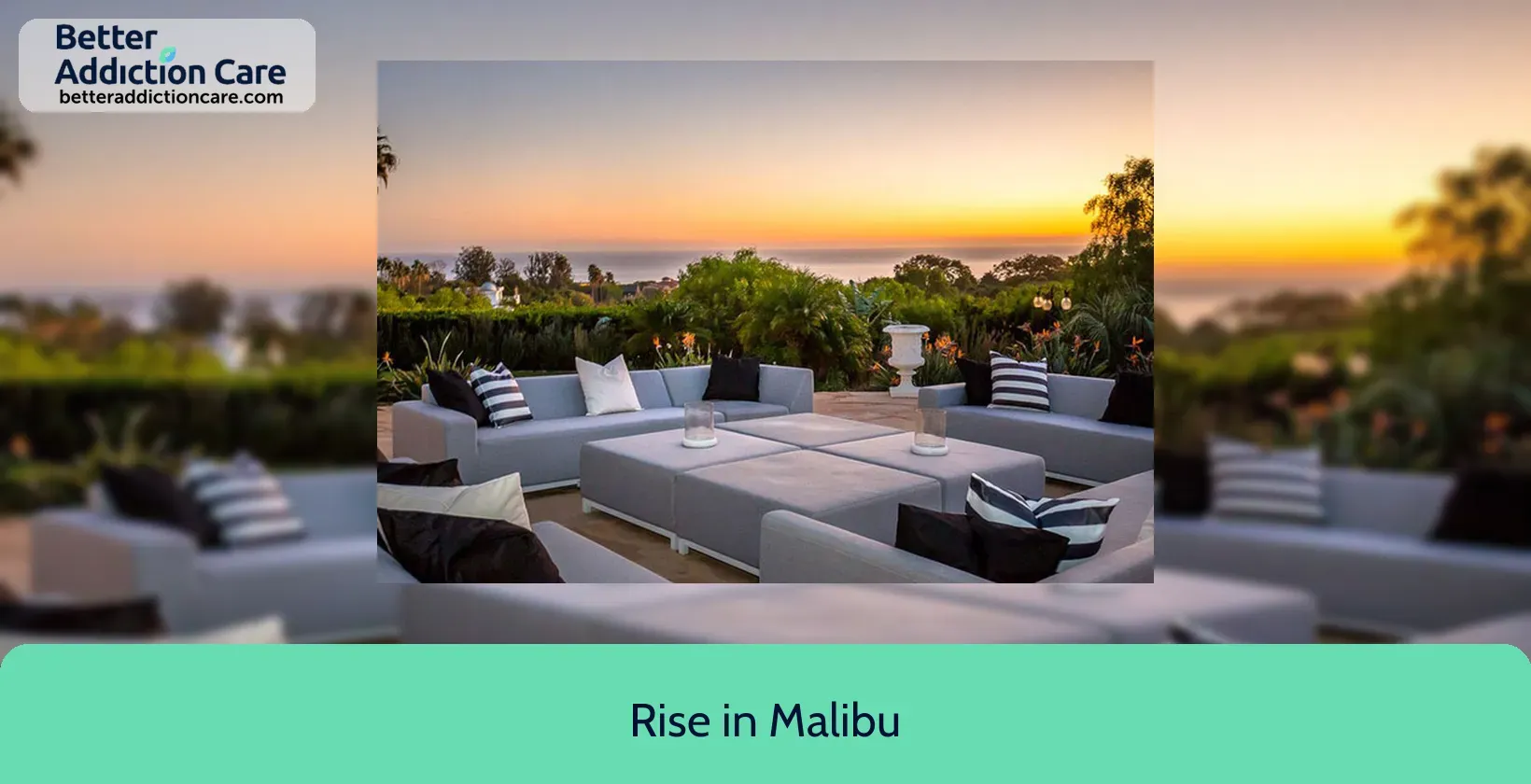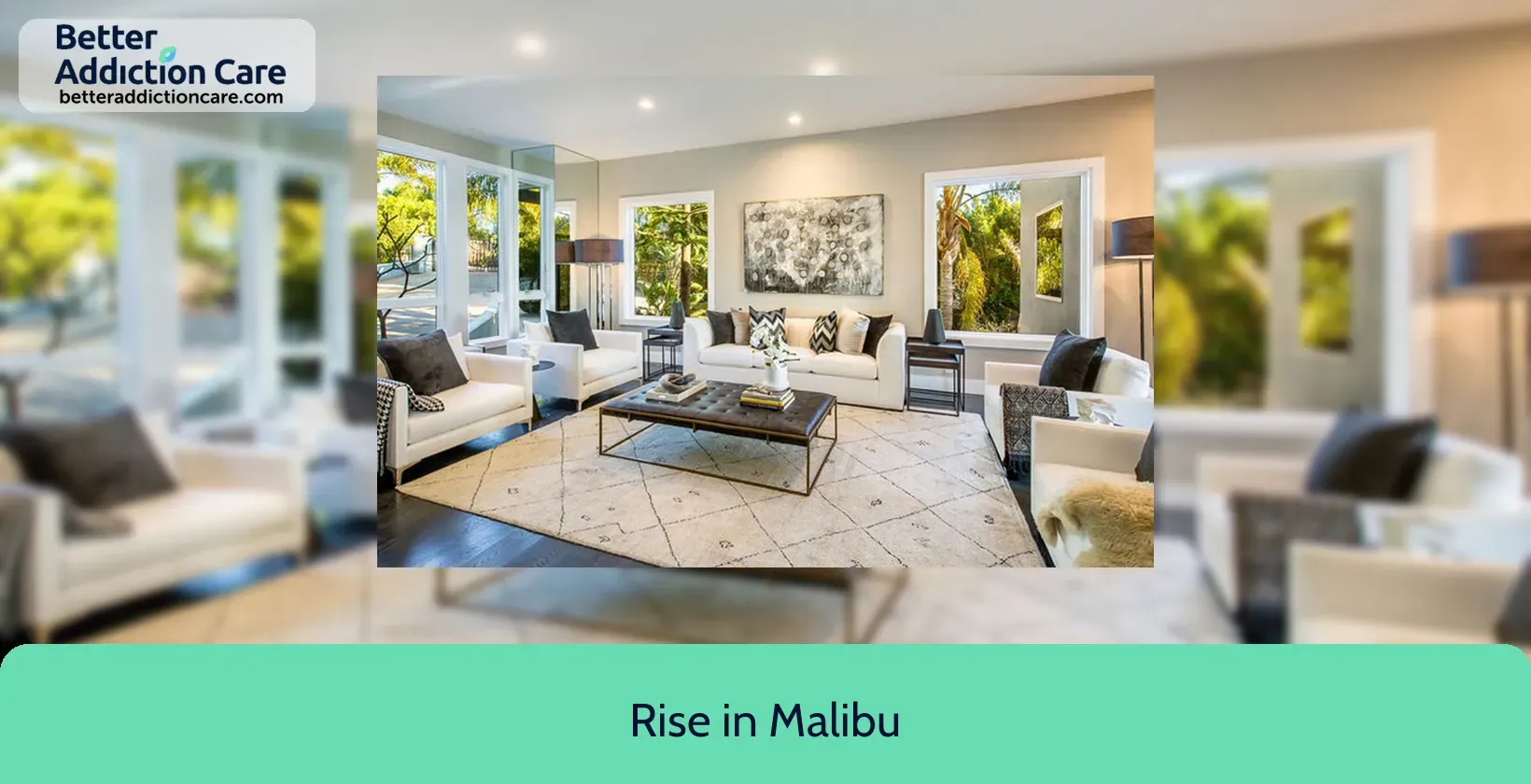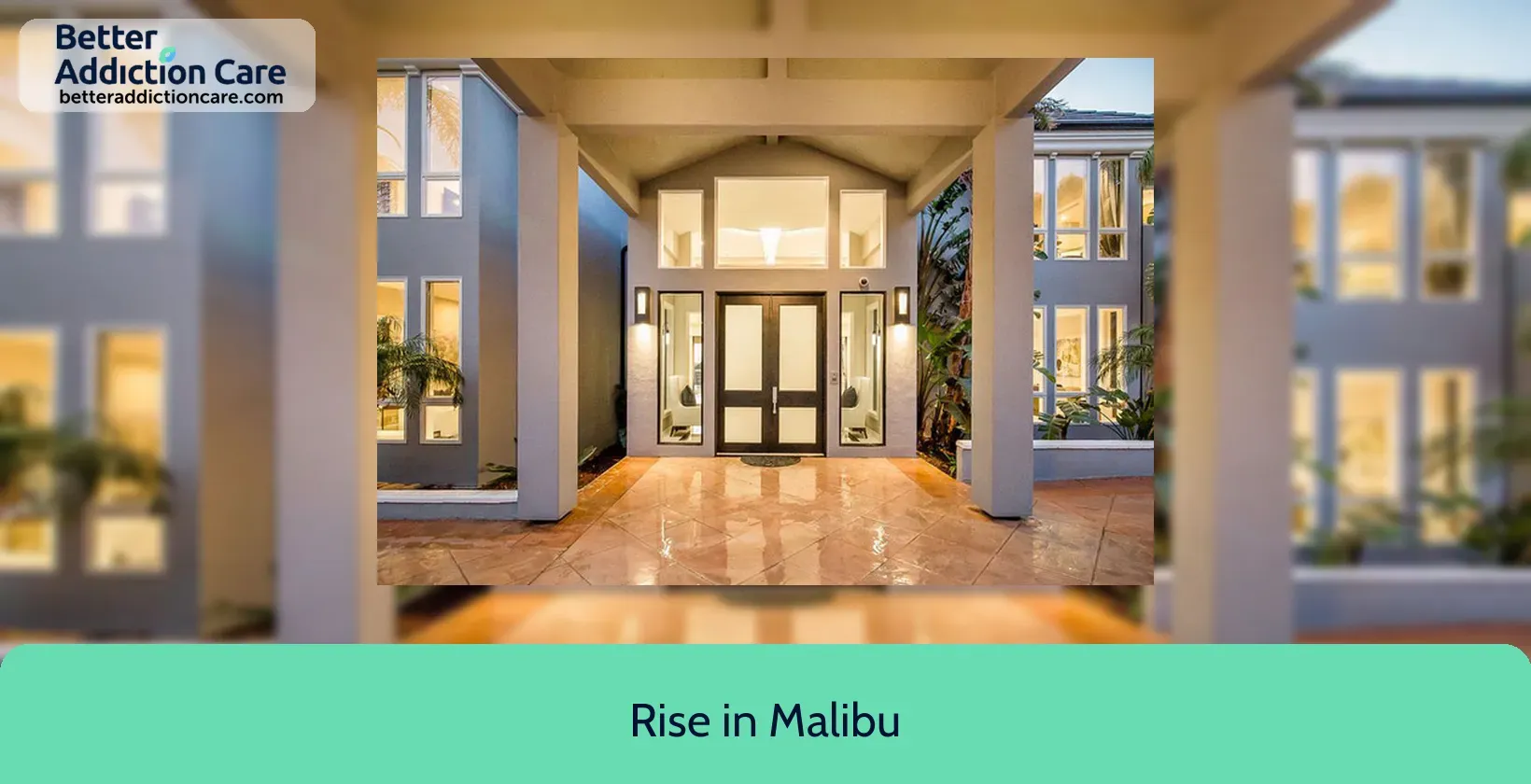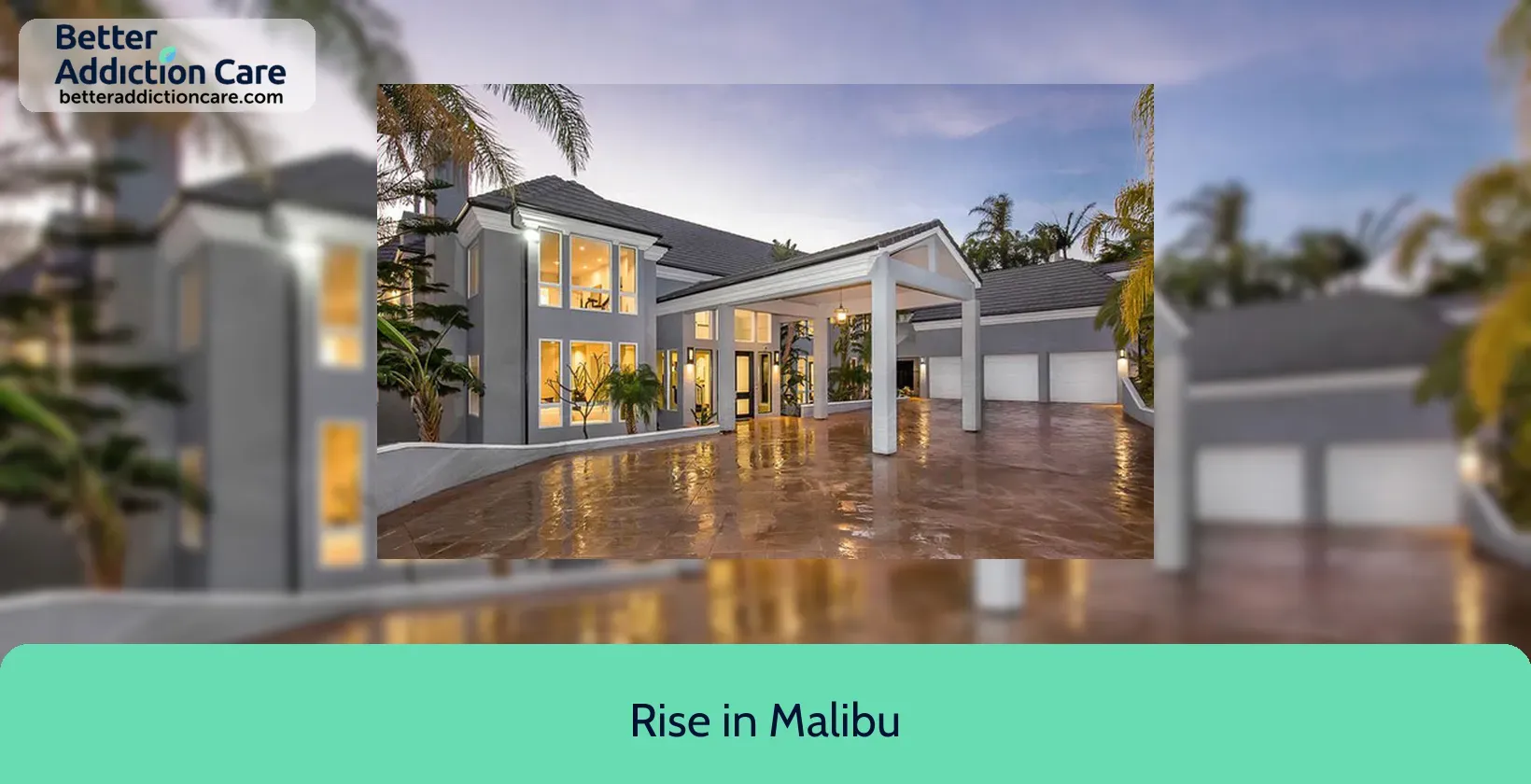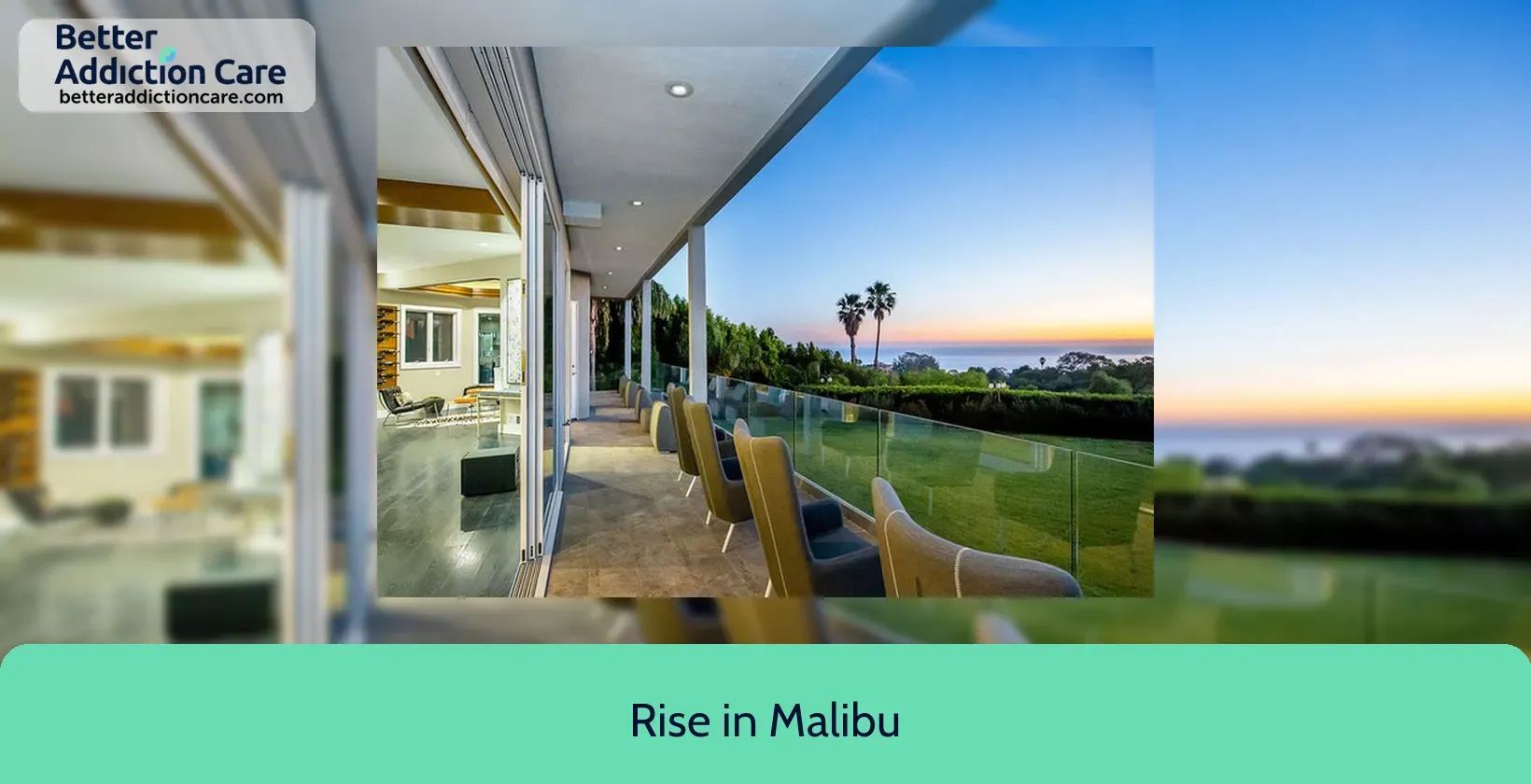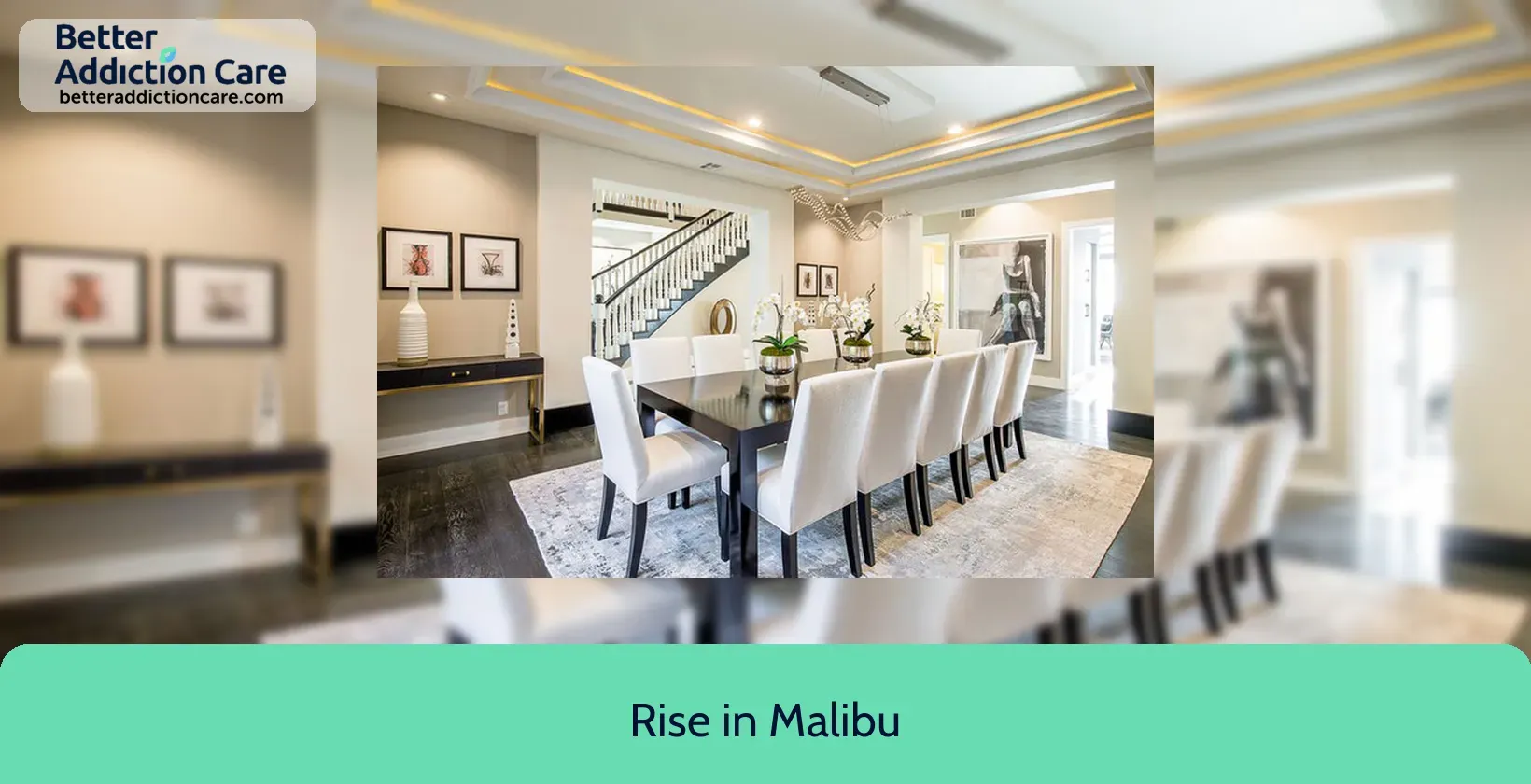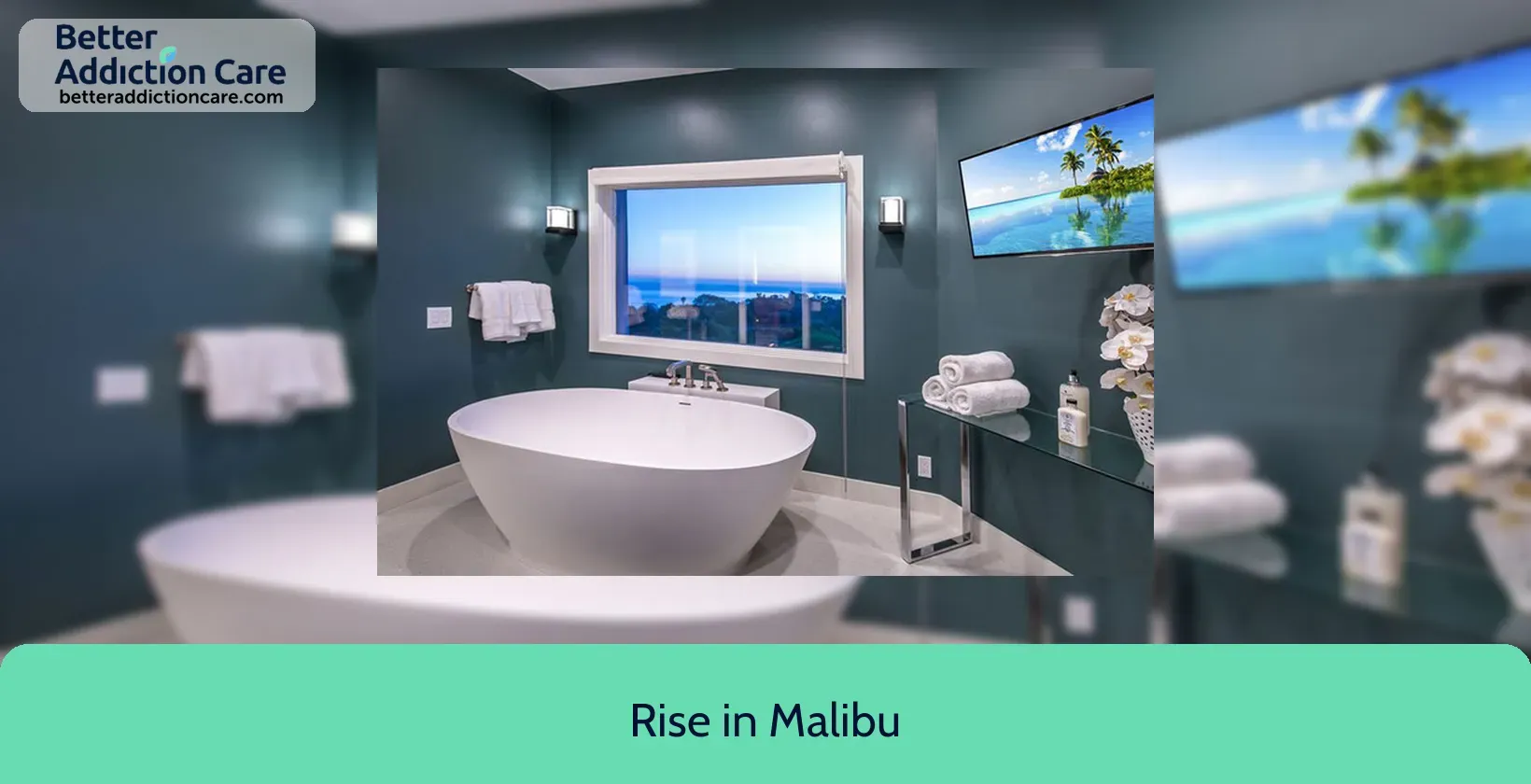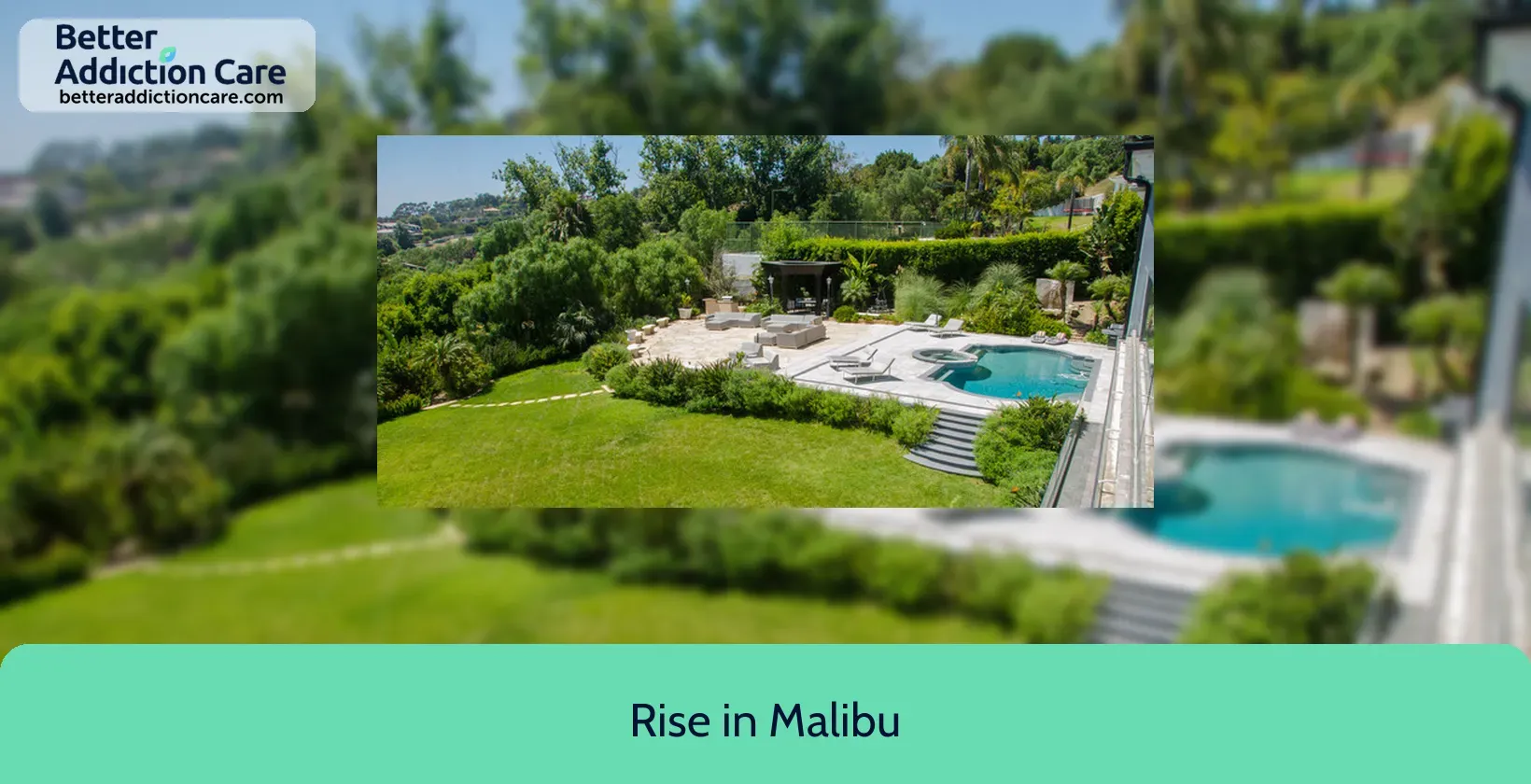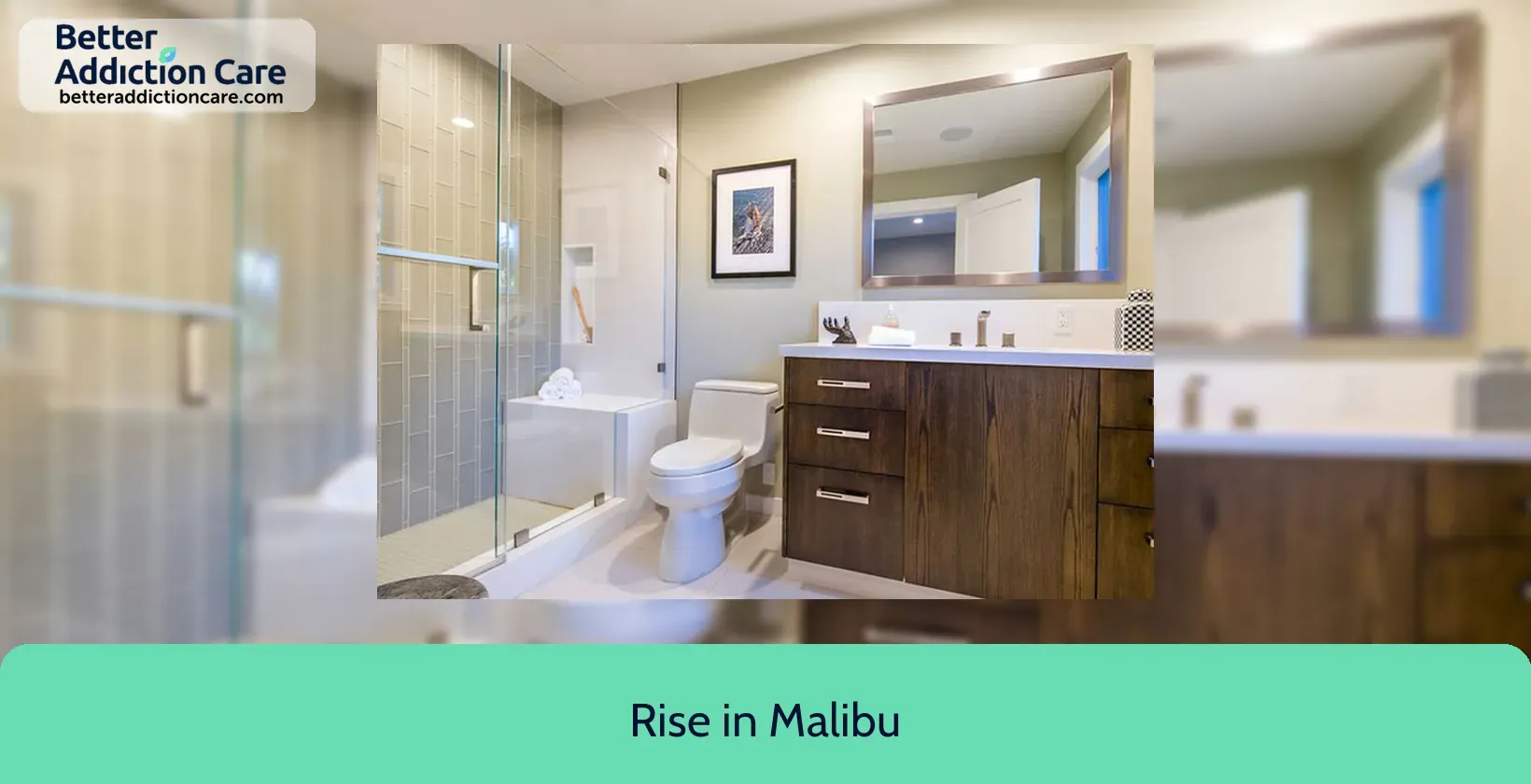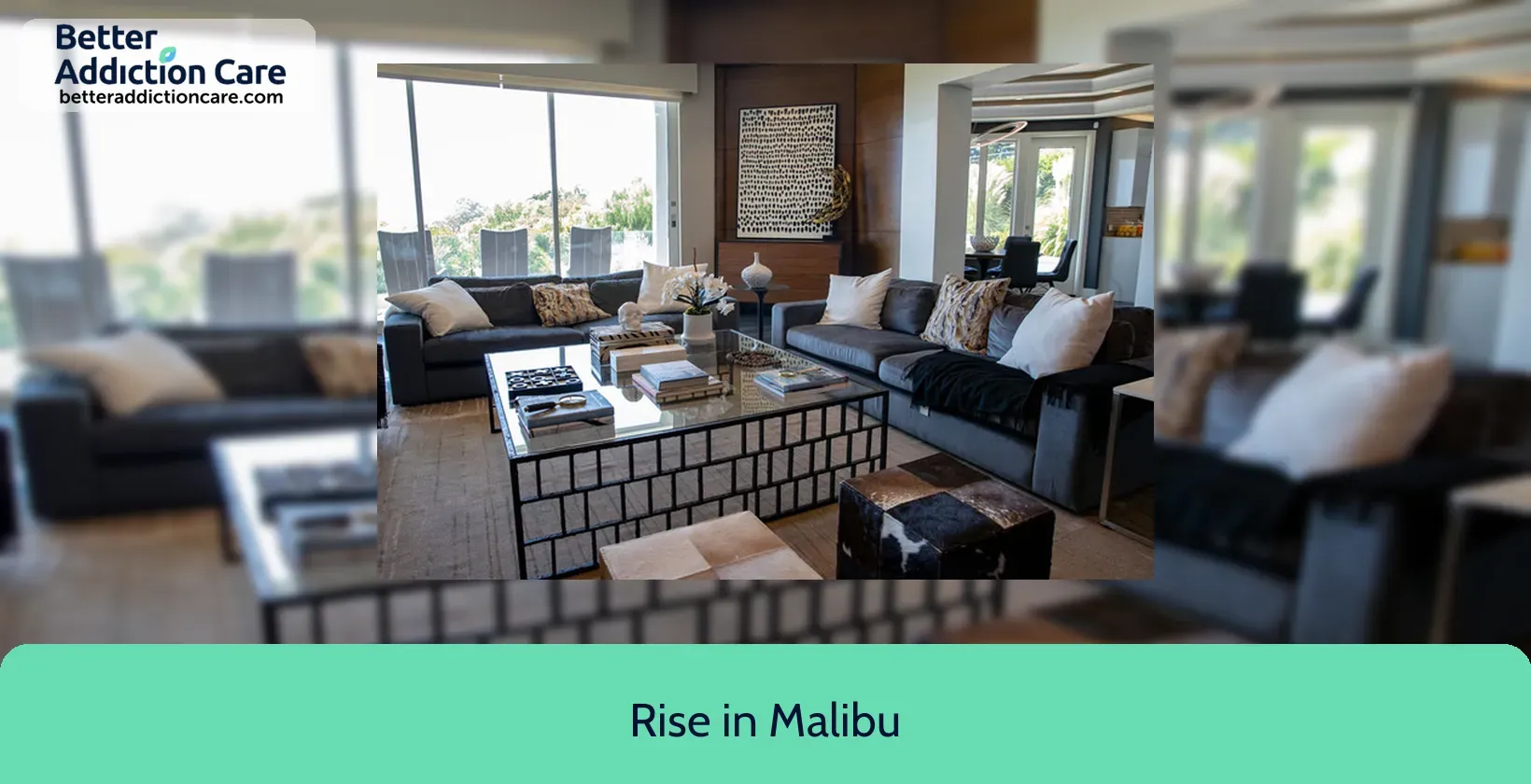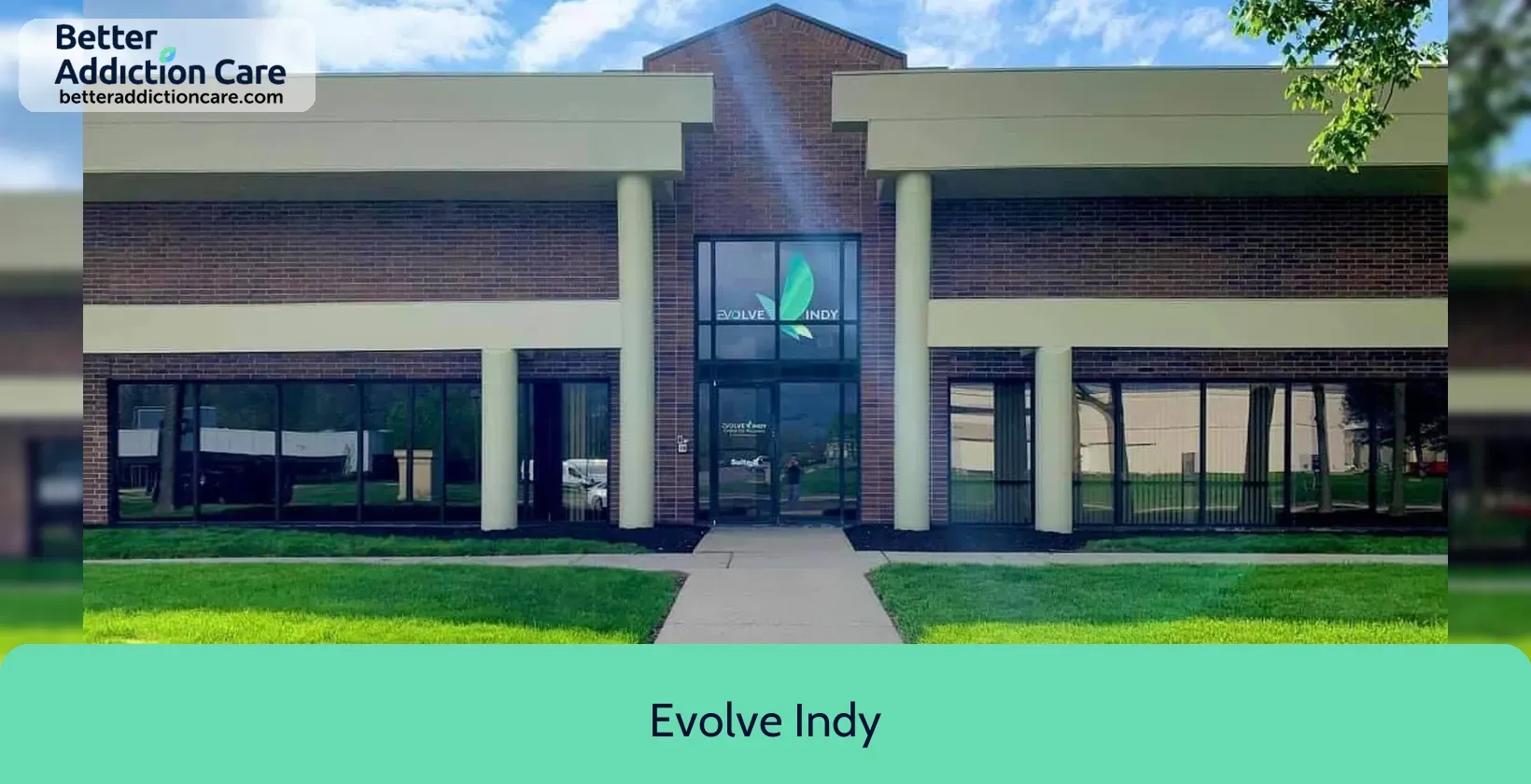Rise in Malibu
Overview
Rise in Malibu is a secluded drug and alcohol rehab program located in Malibu, California. They offer Joint Commission-accredited detox, inpatient treatment, medication-assisted treatment (MAT), and aftercare services for adult clients. Rise in Malibu also offers a true dual-diagnosis program. The campus boasts luxury amenities and a scenic seaside view, providing a serene and secluded environment ideal for recovery.
Detoxification at Rise in Malibu occurs in a luxury residence where clients undergo the detox process in private rooms. They are under the care of trained medical staff equipped with the latest tools and methods to ensure optimal care. The staff assists clients in managing their symptoms to ensure a safe transition to the next phase of substance abuse treatment.
The inpatient program at Rise in Malibu is tailored for clients experiencing severe symptoms, providing a private residence that removes them from stressors and triggers. While benefiting from the property’s amenities and the surrounding beach environment, clients receive comprehensive care from a dedicated staff. Treatment plans are individualized and may encompass a range of services, including individual therapy, family therapy, case management, community-based recovery groups, and specialized education groups for men and women. Additionally, the program integrates holistic therapies such as yoga, acupuncture, and massage therapy, as well as experiential therapy and dual diagnosis support.
For clients approved for MAT, medication is integrated into their treatment plan to help curb cravings. Medication use is closely monitored to ensure its effectiveness and safety.
Aftercare planning at Rise in Malibu focuses on relapse prevention. Before exiting the program, clients work with staff to develop a plan that may include referrals to other programs, connections to community resources, and sober housing plans.
Many major insurance plans, such as Aetna, Beacon, BlueCross BlueShield, Cigna, and Humana, cover some or all addiction treatment costs. Clients are encouraged to confirm coverage with their insurance provider, as out-of-network benefits may vary.
Rise in Malibu is accredited by the Joint Commission holds accreditation from The Joint Commission, underscoring its commitment to maintaining the highest standards of patient care and safety.
Rise in Malibu at a Glance
Payment Options
- Cash or self-payment
- Private health insurance
- Self-pay options
- Financial aid
- Aetna
Assessments
- Comprehensive mental health assessment
- Comprehensive substance use assessment
Age Groups
- Adults
- Young adults
Operation
- Private for-profit organization
Highlights About Rise in Malibu
6.96/10
With an overall rating of 6.96/10, this facility has following balanced range of services. Alcohol Rehabilitation: 8.00/10, Drug Rehab and Detox: 6.00/10, Insurance and Payments: 6.40/10, Treatment Options: 7.46/10.-
Alcohol Rehabilitation 8.00
-
Treatment Options 7.46
-
Insurance and Payments 6.40
-
Drug Rehab and Detox 6.00
Accreditations
LegitScript:

The LegitScript Accreditation signifies an organization's commitment to ethical and high-quality care in the field of addiction treatment and behavioral health. This accreditation allows treatment providers to be included in Google's network, ensuring compliance with HIPAA privacy regulations.
The Joint Commission:

The Joint Commission, previously known as JCAHO, is a nonprofit organization that accredits rehabilitation organizations and programs. Established in 1951, its mission is to enhance the quality of patient care and showcase excellence in healthcare delivery.
Registration: 636837
State department of health:

State Licenses, issued by government agencies, authorize rehabilitation organizations to legally operate within designated geographical areas. The specific licenses required for operation are typically determined by both the nature of the rehabilitation program provided by the facility and its physical location.
Treatment At Rise in Malibu
Treatment Conditions
- Mental health treatment
- Alcoholism
- Opioid Addiction
- Substance use treatment
- Co-occurring Disorders
Care Levels
- Partial Hospitalization Program
- Intensive outpatient treatment
- Luxury Treatment
- Detoxification
- Aftercare
Treatment Modalities
- Group counseling
- Trauma-related counseling
- 12-step facilitation
- Cognitive Behavioral Therapy
- Dialectical Behavior Therapy
Ancillary Services
Special Programs
- Clients who have experienced trauma

Additional Locations
Get Help Now
Common Questions About Rise in Malibu
Contact Information
Other Facilities in Malibu
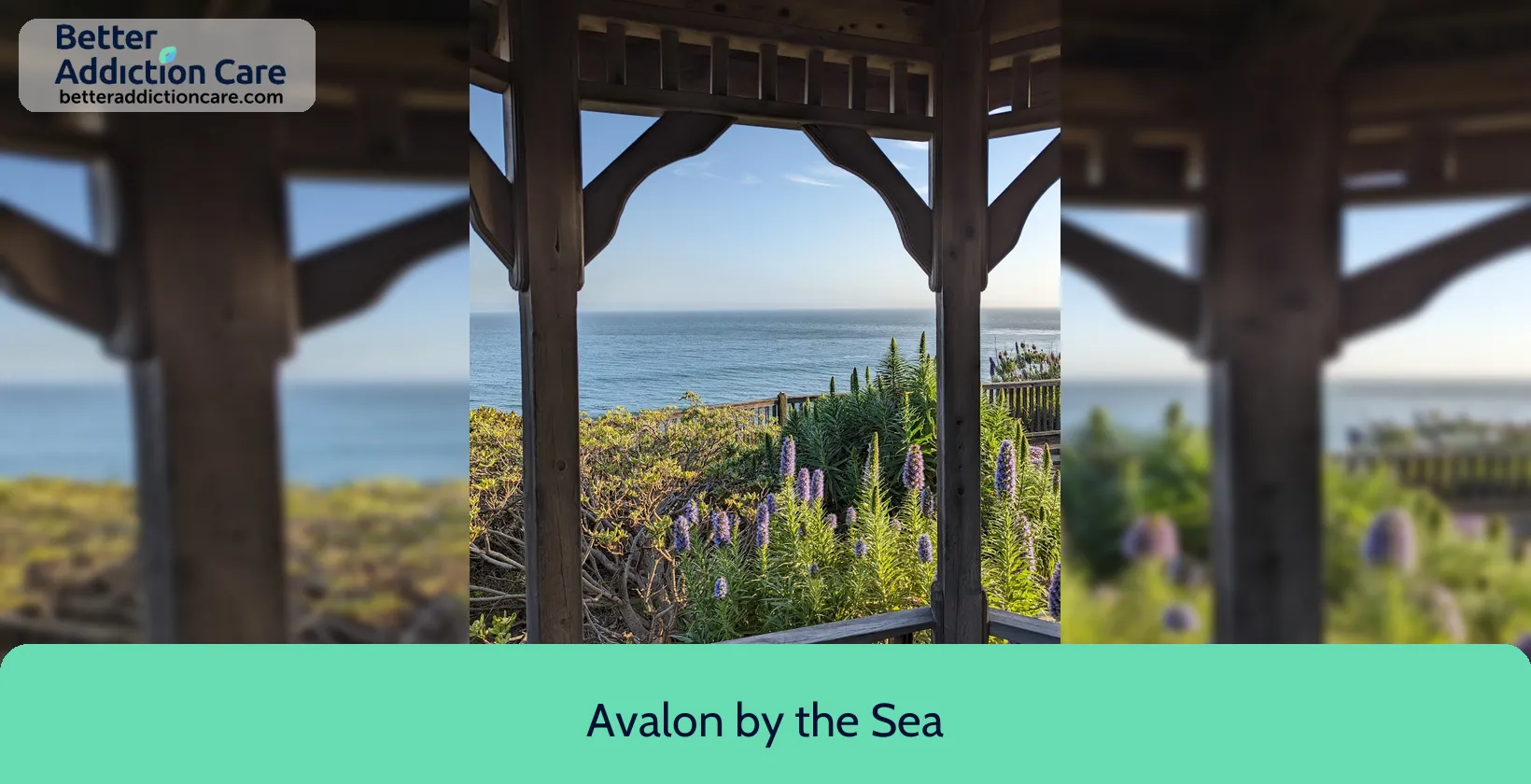
6.92

7.05
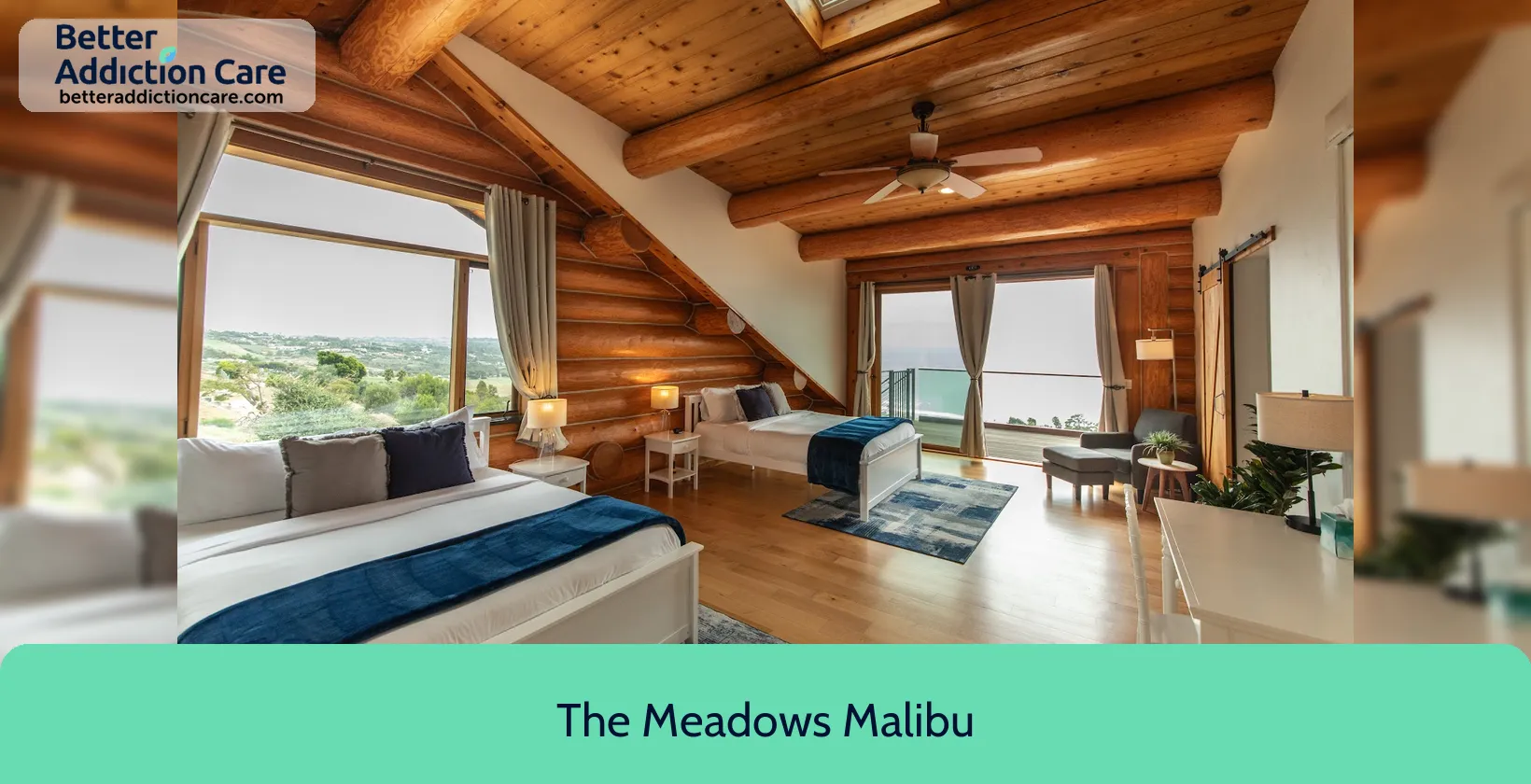
7.19

7.17
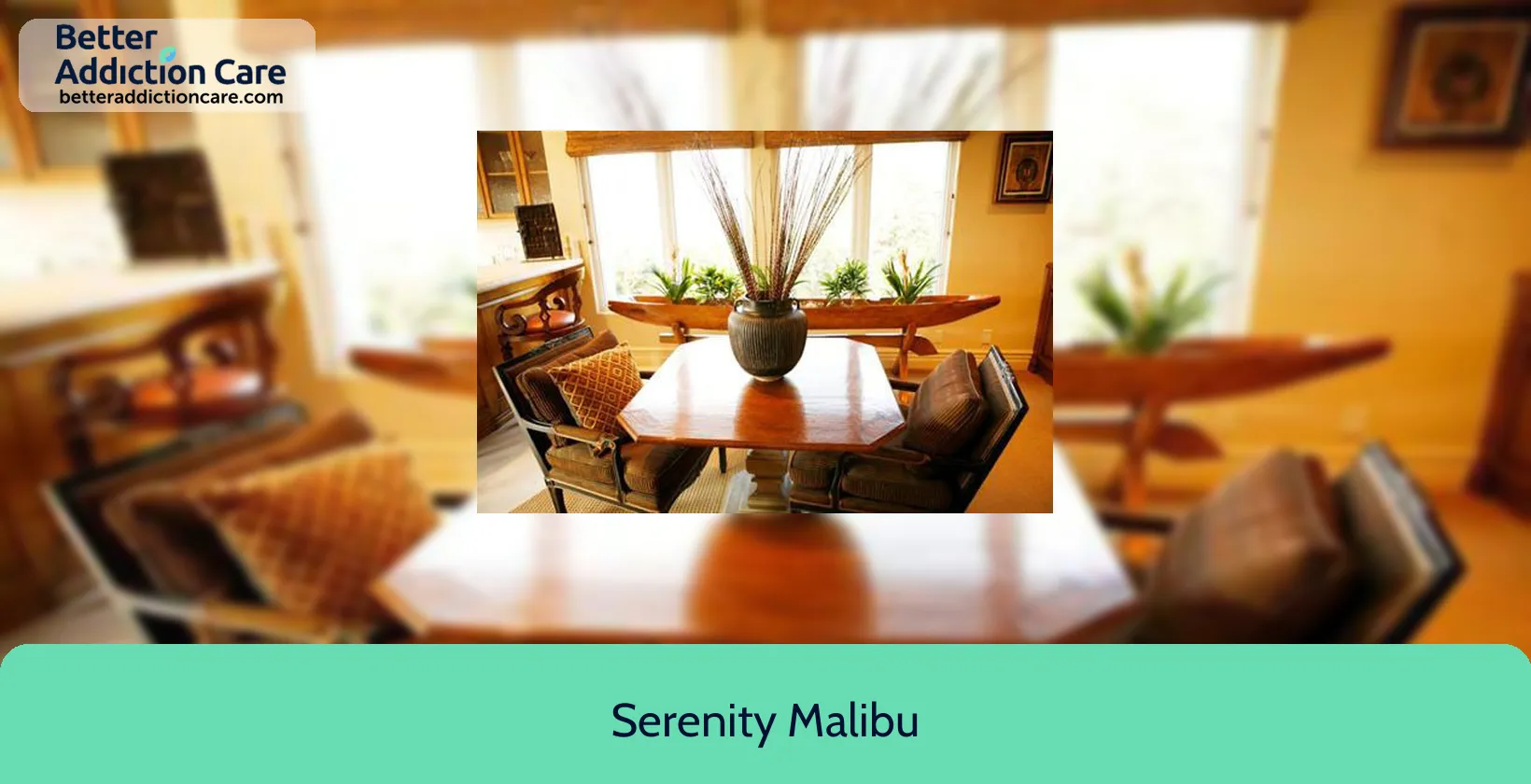
7.18

7.18

7.13

7.15
DISCLAIMER: The facility name, logo and brand are the property and registered trademarks of Indigo Ranch Sober Living, and are being used for identification and informational purposes only. Use of these names, logos and brands shall not imply endorsement. BetterAddictionCare.com is not affiliated with or sponsored by Indigo Ranch Sober Living.
